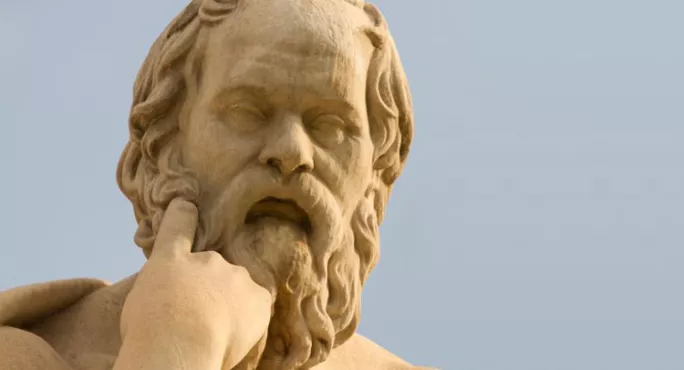- Home
- Teaching & Learning
- General
- What is teaching? Let’s settle the centuries-old debate
What is teaching? Let’s settle the centuries-old debate

Teaching was doomed, to begin with.
Some of the earliest writing we have on the practice of teaching comes from Socrates (or at least Plato writing what he thought Socrates would have written) and in this, we find the idea that the teacher’s role was not to transmit knowledge but to draw out what was already there in the student.
The teacher in this process had nothing to offer but a pedagogy designed to lead people to realise what they already knew.
Fast forward two and half millennia and voicing the idea that teachers just might also be there to transmit knowledge, to teach what they know rather than to facilitate learning in another, still draws sharp breaths from the educational world.
Squeamishness and snobbery
Over the 18 years I have been teaching, I have lost count of how many times I have heard expressions like “they start learning when you stop talking” or how often any discussion about the need to actually teach someone something you know devolves into cries of “drill and kill”, “rote learning”, and accusatory questions about “whose knowledge” you are trying to teach.
There seems to be a squeamishness, an inverse snobbery, about the idea that one person might know more about something than someone else or that there might be a body of knowledge that a culture feels is important and wants to preserve and pass on from generation to generation, adding to it and reevaluating it all the while.
In one of the most beautiful pieces of educational writing I have ever come across, Receiving The Gift of Teaching: from ‘learning from’ to ‘being taught by’, Biesta argues that we should see the role of the teacher not as a facilitator of learning but as a teacher who is passing on a gift through their teaching.
They aren’t drawing out that which is already within the pupil but adding something new to them. We have thousands of years of discoveries, art, drama, music and realisations that have been created and developed across the world and the role of the teacher becomes that of a curator, gathering together what they know, and gifting it to the next generation - transmitting this gift.
The evolution of knowledge
Of course, transmission in this case isn’t about producing an exact replica in the mind of the pupil, learning doesn’t work like that. What we gift to them will be shaped by what they already know and what they have experienced, and that is great and should be celebrated. Knowledge, like a living thing, evolves as it is passed on through the generations.
As with any true gift, it comes without obligation. They can decide to reject the gift entirely, dismissing it as worthless to them, or put it away and rediscover it in years to come when they suddenly see its value.
However, they can only make up their own minds about what to do with the products of previous generations if they have been presented with it in the first place.
If we want young people to have agency, to be able to think for themselves and challenge and change the world for the better, then they need to have the knowledge with which to think and act.
Dialogic teaching, which involves engaging pupils in deeper conversations about their learning, is often held up as a counterpoint to a transmission model of teaching. However one of the foremost thinkers in the field, Robin Alexander, points out that teacher talk is richest in countries where “knowledge transmission and cultural initiation were explicit education goals”.
Where this history of knowledge transmission has been replaced with what Biesta terms constructivist pedagogies, we don’t find opportunities for dialogue. The pupils don’t know enough.
I think we are starting to see a welcome change in English schools where, after centuries of being told to be a guide on the side, the teacher is taking their place as a sage on the stage.
Hopefully, this will lead to greater respect for the teaching profession as people with more to offer society than what pupils already bring in with them to their classrooms, and lead to a generation of young people going out into the world laden with the most amazing gifts; the collected wisdom, art and knowledge of the generations that preceded them.
You need a Tes subscription to read this article
Subscribe now to read this article and get other subscriber-only content:
- Unlimited access to all Tes magazine content
- Exclusive subscriber-only stories
- Award-winning email newsletters
Already a subscriber? Log in
You need a subscription to read this article
Subscribe now to read this article and get other subscriber-only content, including:
- Unlimited access to all Tes magazine content
- Exclusive subscriber-only stories
- Award-winning email newsletters
topics in this article



